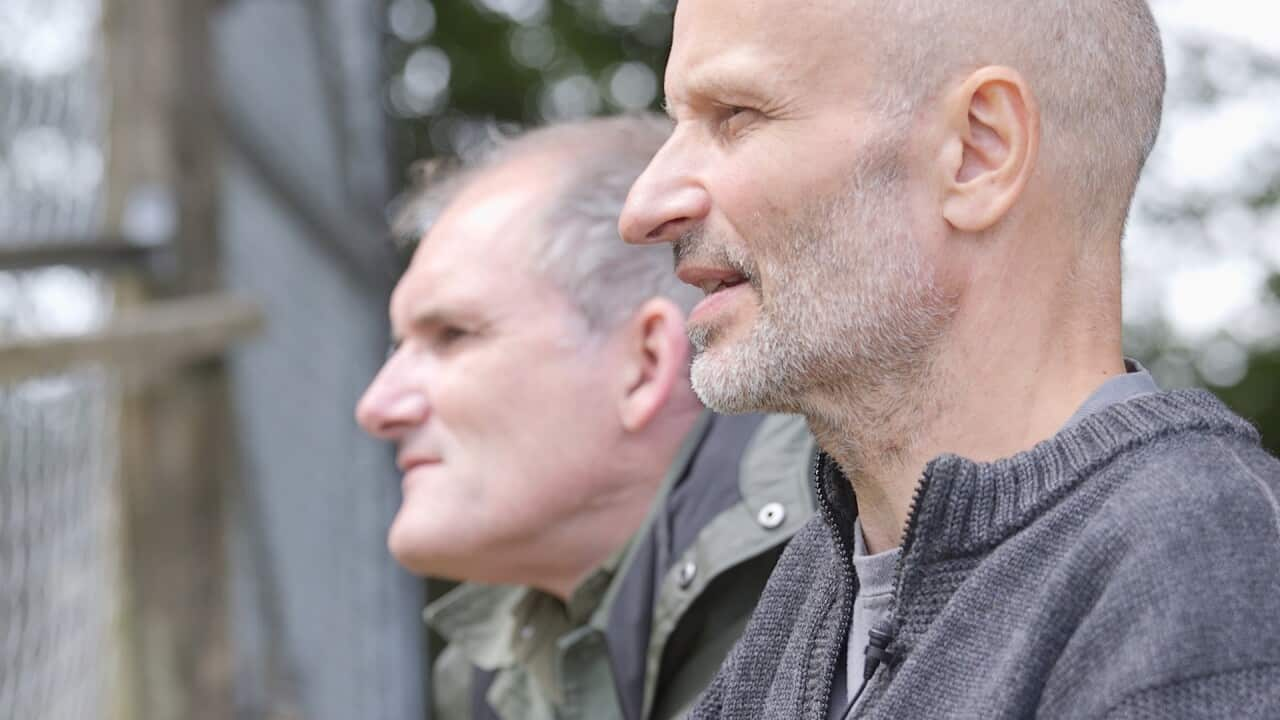When Mick Feeney was on rescue missions to find injured koalas during the 2019/20 summer bushfires what he saw was "end of the world stuff."
The bushland near Port Macquarie was destroyed, the “fire took everything for kilometres.” It had ripped through koala habitat, so-much-so that when people asked rescuers how many dead koalas were found, the answer was none. It’s suspected they had been incinerated.
But in the canopy of the tallest trees that escaped the flames, Mick saw hope.
“That’s where they were clinging to life,” Mick Feeney, a Port Macquarie Koala Hospital volunteer.
The same area has now regenerated. Plantlife has returned, leaving the bushland looking relatively normal, with blackened bark a reminder of the horror that passed almost one year prior.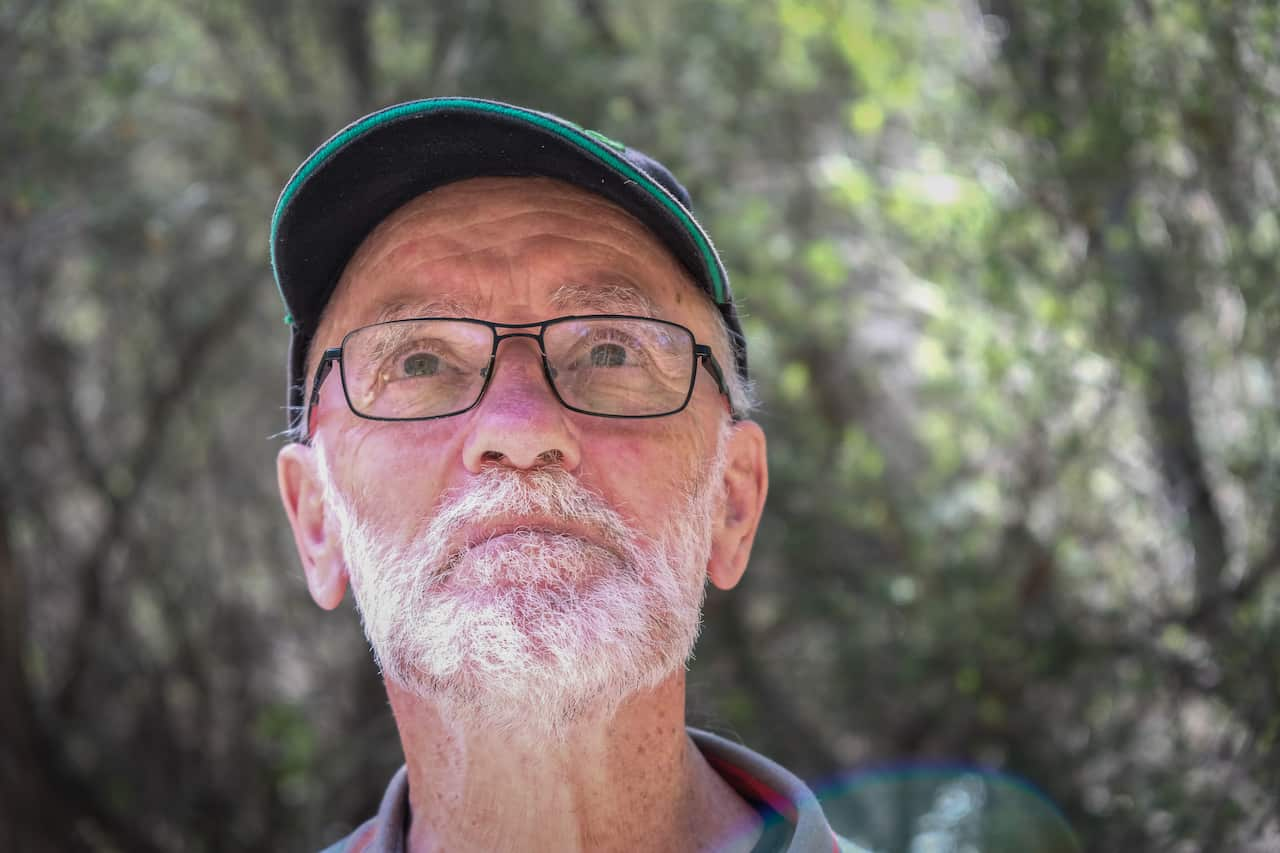 But the koala population has not regenerated in kind. A report released this month has revealed that in some areas in NSW, the koala population has declined by 71 per cent.
But the koala population has not regenerated in kind. A report released this month has revealed that in some areas in NSW, the koala population has declined by 71 per cent.

Mick Feeney said the scenes during the summer bushfire season were 'end of world stuff.' Source: Dateline Emily Jane Smith
The study, conducted by ecological consultancy Biolink on behalf of the World Wildlife Fund, surveyed six fire grounds searching for scats below large koala food trees. The koala population declines varied between 34 per cent and 100 per cent.
“To replace them is going to take years, and years, and years. It probably won't be in my lifetime,” said the President of the Port Macquarie Koala Hospital Sue Ashton.

A koala at the Port Macquarie Koala Hospital enjoys a feed. Source: Dateline
The small volunteer-run koala hospital was at the frontline of the bushfires, treating what Sue described as an “assembly line” of horrifically injured koalas. Their efforts were so profound they received worldwide news coverage -- Mick was even part of a Japanese documentary. They started a GoFundMe because their website crashed from the volume of people wanting to donate.
The fundraiser began with a $25,000 target. It raised $7.9 million in total.
“We were going to close the account, we thought we've reached our target, we don't want to be greedy… When it had reached four million we realised that we could bring forward a long term project which was to breed wild koalas.” While the hospital is on the precipice of announcing the world's first wild koala breeding program, SW state politicians are at loggerheads over koala protection policy.
While the hospital is on the precipice of announcing the world's first wild koala breeding program, SW state politicians are at loggerheads over koala protection policy.

President of the Port Macquarie Koala Hospital Sue Ashton is a dedicated volunteer. Source: Dateline Emily Jane Smith
A new State Environmental Planning Policy for Koala Habitat Protection is designed to slow down habitat destruction, but requires landowners to provide more evidence that proposed developments will not impact koala habitats.
The NSW Nationals are concerned changes to the Koala Habitat Protection State Environmental Planning Policy limit land use on farms and the ability to rezone areas for development as more trees are classed as koala habitat. The party's leader John Barilaro last week threatened to march his Nationals colleagues to the crossbench if concessions on this point weren’t made. He has since gone on mental health leave.

This koala is preparing for release into the wild after a successful recovery. Source: Dateline
“They will never be held in captivity”
The Port Macquarie Koala Hospital breeding program is being developed in partnership with a number of organisations and experts. Once it’s up and running, the model will be shared with other wildlife groups across Australia.
It’s different from captive breeding, where the koalas stay in zoos or sanctuaries for their entire lives. Their koalas will be bred for release as new populations in the wild.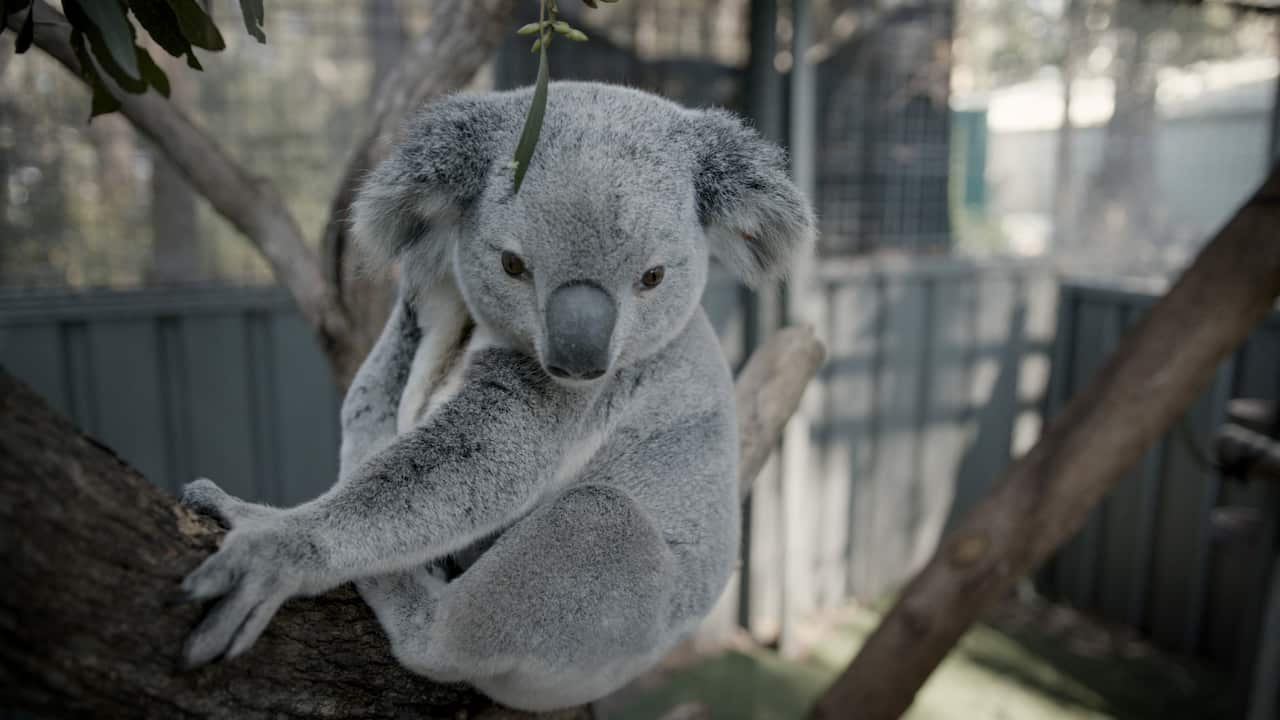 “They will never be held in captivity, as soon as they wean from their mothers at about 12 to 14 months, they will be released into the wild.”
“They will never be held in captivity, as soon as they wean from their mothers at about 12 to 14 months, they will be released into the wild.”

Franklin Ballina, nicknamed George Clooney "for his good looks," will be used as part of the world first wild koala breeding program. Source: Dateline
Koalas will be released in populations that have been devastated by bushfires, or in areas where genetic problems have led to disease and premature death, and there is a need to introduce genetic diversity.
The program is a much-needed symbol of hope for the hospital, run by over a hundred volunteers and about five paid staff.
The group was just recovering from the fires (“you could see smiles again,” Sue said) when the coronavirus pandemic forced the hospital to close to visitors.
“It was almost a sense of disbelief, how can we have one natural disaster and then another,” she said.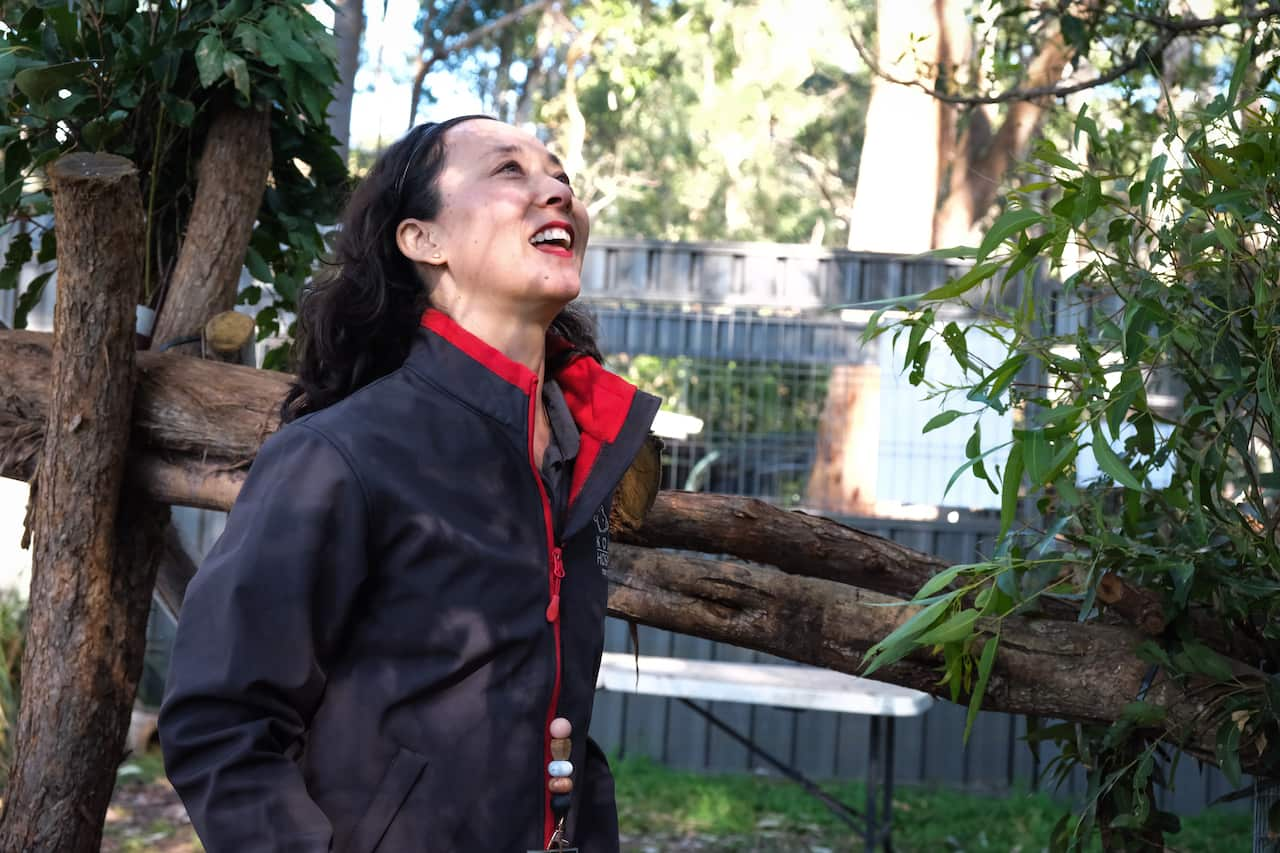 Like many zoos and conservation programs, the hospital’s finances are dependent on visitors.
Like many zoos and conservation programs, the hospital’s finances are dependent on visitors.

Amanda looks up at a rehabilitated koala. She became a volunteer after visiting the hospital more than a decade ago. Source: Dateline Emily Jane Smith
While the hospital does not have an entry fee, it relies on voluntary donations to fund the hospital’s $700,000 operational costs.
The hospital closed to visitors for four months and COVID-19 restrictions have since halved the number of people coming through their doors.
And much like Celeste Barber’s Facebook fundraiser, the $7.9 million raised by the hospital cannot be repurposed for uses other than what was stated in the original fundraiser.
The Port Macquarie Koala Hospital’s GoFundMe outlined it would build wildlife water drinking stations across drought NSW (which they have already done) and a world-first wild koala breeding program. It can’t be used to prop up their operational costs impacted by the coronavirus.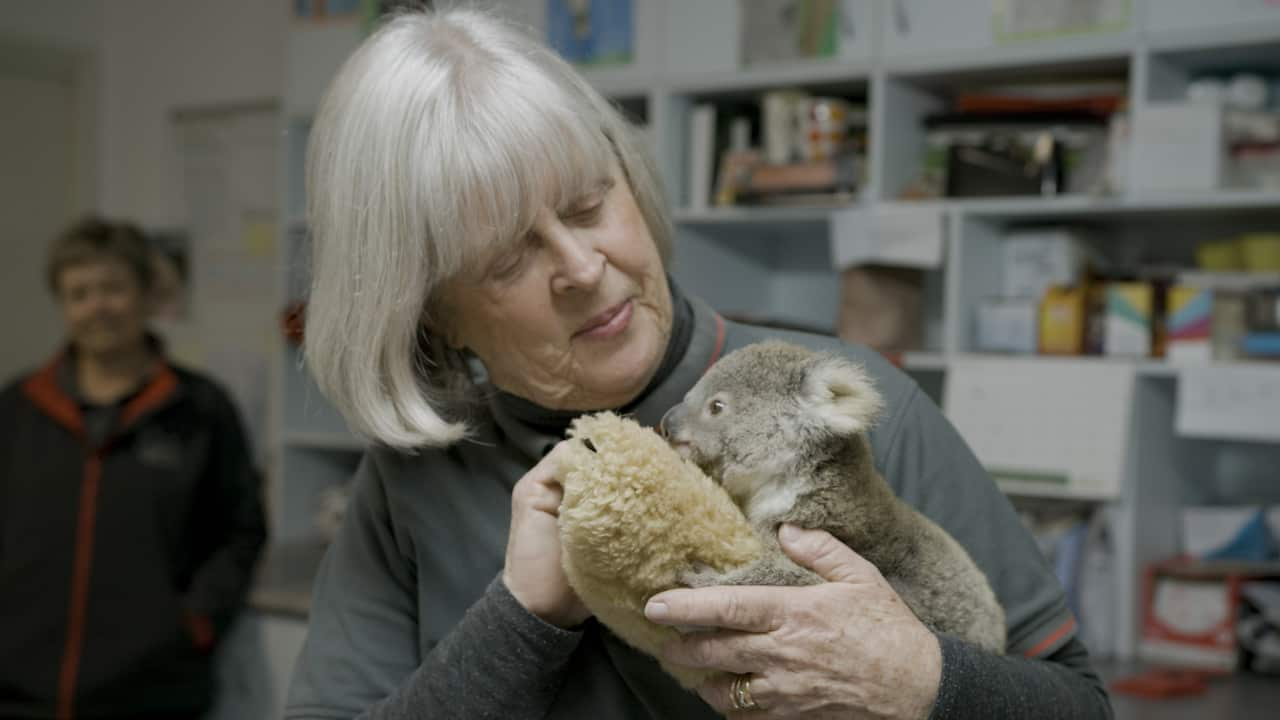 “That’s dishonest, it would be saying that we're going to use it one way and we use it for another,” he said.
“That’s dishonest, it would be saying that we're going to use it one way and we use it for another,” he said.

An orphaned joey being cared for by a volunteer. Source: Dateline
Sue said it “will be a tough year” but the hospital isn’t crying poor. They have just received a one-off $5 million grant from the NSW government to renovate some of the hospital and the worldwide coverage meant hundreds were still contributing to their ‘adopt a koala’ program. Many organisations are undergoing more significant hardship.
The hospital is hopeful the wild koala breeding program will be launched before the end of the year.
And while the international coverage of koalas during the bushfires has aided the koala breeding program, the hospital’s key concern is ongoing habitat destruction.
“Whilst they're losing habitat, we're losing koalas to disease, to motor vehicle strikes and to dog attacks.”

